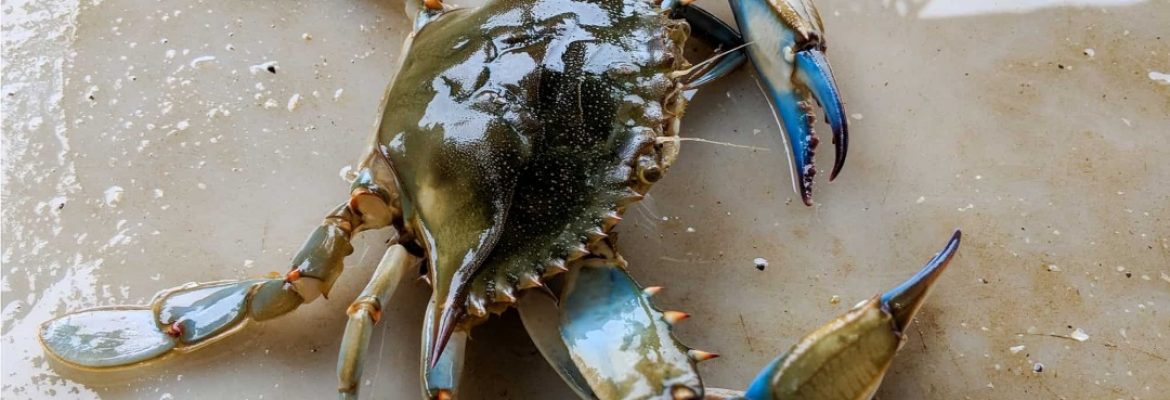Crab may be described as a form of decapod with four pair of legs, one pair of pincers, a flattish shell and a short broad abdomen folded under its thorax. It is a sea creature with a flat round body covered by a shell, and five pair of legs, with large claws on the front pair. Crabs usually move sideways.
Crabs belongs to the class of Malacostraca, order of Decapoda, suborder of Pleocyemata and infraorder of Brachura. Crabs are generally covered with a thick exoskeleton, composed primarily of highly mineralized chitin, and armed with a pair of chelae (claws). Crabs vary in size from the pea crab, a few millimetres wide, to the Japanese spider crab, with a leg span up to 4 m (13 ft). Several other groups of crustaceans with similar appearances – such as king crabs and porcelain crabs – are not true crabs, but have evolved features similar to true crabs through a process known as carcinisation.
Crabs are found in all of the world’s oceans, as well as in fresh water and on land, particularly in tropical regions. About 850 species are freshwater crabs. Crabs often show marked sexual dimorphism. Males often have larger claws, a tendency that is particularly pronounced in the fiddler crabs of the genus Uca (Ocypodidae). In fiddler crabs, males have one greatly enlarged claw used for communication, particularly for attracting a mate. Another conspicuous difference is the form of the pleon (abdomen); in most male crabs, this is narrow and triangular in form, while females have a broader, rounded abdomen. This is because female crabs brood fertilised eggs on their pleopods.
Below are some benefits of crab.
- IT IMPROVES HEART HEALTH.
. The omega-3 fatty acids in crab provide many benefits related to heart health. These important nutrients may help lower triglycerides, reduce blood clotting, and make it less likely that you’ll develop an irregular heartbeat.
- IT AIDS IN PREVENTING ANEMIA.
Many of the nutrients found in crab, including vitamin B12 and folate, help reduce the risk of vitamin deficiency anemia. People with vitamin deficiency anemia do not have enough healthy red blood cells and may experience fatigue or weakness as a result.
- IT HELPS TO KEEP THE BRAIN STRONG.
Research suggests that people who eat seafood, such as crab, at least once per week have a reduced risk of dementia and Alzheimer’s disease. This protection may stem from the high levels of omega-3 fatty acids found in seafood products.
REFERRENCES:
- CRAB ANIMAL – ENCARTA. MICROSOFT. 2005.
- COLLINS DICTIONARY.
- NOURISH BY WEBMD
ARTICLE BY ANUM JUSTICE GIDEON OBODAI.

